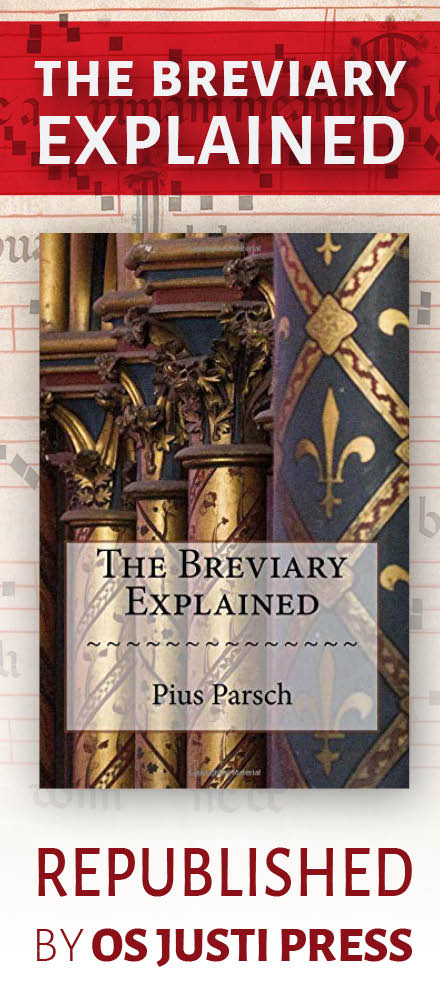It is perhaps difficult to believe, especially for those who were born after Vatican II, but there was really was a time when people within the Church, even at the uppermost levels of the hierarchy, thought that the reforms and changes that would be introduced after the Council would actually have something to do with what the Council itself said. Of course, were one to read any of its documents, and then look at the reality of the Church as it is now, one would reasonably be skeptical of such a claim, and many people have been skeptical of it. However, the indefatigable Sharon Kabel has unearthed yet another very interesting piece of history, one which proves that the claim is in fact true.
On April 6, 1964, the Catholic Transcript, an official publication of the Archdiocese of Hartford, Connecticut, printed an article titled “Gregorian Chant Not In Any Danger, Pope Tells French.” It is brief enough to quote in full.“Pope Paul VI has sought to assuage the fears of those who see the ecumenical council’s Constitution on the Liturgy as possibly spelling a new eclipse for Gregorian chant. Speaking to a pilgrimage of French teachers of plain chant, the Pope said, ‘Are any of you perhaps alarmed at the future applications of the Constitution on the Sacred Liturgy which was adopted by the council Fathers and promulgated by us last Dec. 4? Let them read that admirable text’s passage concerning liturgical chant, and particularly the following: “The treasure of sacred music is to be preserved and fostered with great care… ” (Liturgy Constitution, Paragraph 1141).
Pope Paul went on to say that some ‘effort of adaptation’ will be necessary, but added he is confident ‘that you are generously disposed and prepared to do so.’ Stating that Gregorian chant assures great beauty to the rites of the Church, the Pope declared: ‘As our predecessors often pointed out, this chant has all the qualities required in religious music.’ ”
Note this carefully: the Pope takes it for granted that the Church’s treasure of sacred music will in fact be preserved and fostered with great care, because the Council has said that that it is to be preserved and fostered with great care, and this is sufficent to assuage the fears of those who worry that chant faces a new eclipse. Furthermore, he even appeals to his predecessors’ praise of Gregorian chant, also within the context of assuaging such fears, which strongly suggests (without explicitly stating so) that he intends to follow their example. But the stated intention is absolutely clear; the Council will be obeyed.
It hardly needs to be said that honesty played far too small a role in the execution of the post-Conciliar reform, and currently plays far too small a role in the ongoing assessment of it. But I feel that honesty requires us to recognize not only that the Council was not obeyed, but also that responsibility for that disobedience lies first and foremost with Paul VI himself. Only five and a half years later, at the final general audience before the imposition of the Novus Ordo (Nov. 26, 1969), he admitted that the arrival of the new liturgy would indeed bring about the very eclipse that he had previously declared would not take place. “We (i.e. the Church) will lose a great part of that stupendous and incomparable artistic and spiritual thing, the Gregorian chant.” There is no reason why the post-Conciliar liturgy cannot and should not be sung with Gregorian chant and sacred polyphony, but this baleful prediction did, sadly, prove to be true. Honesty likewise requires us to recognize that this happened in no small part because the Pope did nothing to safeguard the dignity and beauty of the liturgy, to “preserve and foster” the “treasure of sacred music” as the Council had asked, or to exclude inappropriate music from our churches.
At the very same audience, Paul VI also declared that the first motive for the “grave changes” which were taking place in the liturgy was “obedience to the Council.” As a very witty man once said about Teilhard de Chardin, he “can be excused of dishonesty only on the grounds that before deceiving others he has taken great pains to deceive himself.” Fifty-five years have passed since the official closure of Vatican II; it is well past time for us to take similarly great pains to undeceive ourselves about the failure of the subsequent reforms.





















